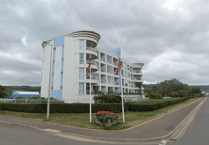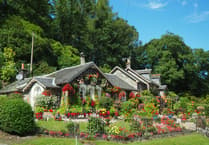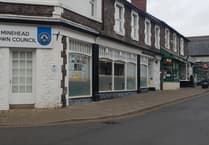OPINION remains deeply divided on the effectiveness of culling badgers in a bid to stem the rise of bovine TB.
Supporters insist it is necessary to tackle the disease in cattle but opponents have branded it inhumane and ineffective.
Environment Secretary Owen Paterson said this week that if the cull was rolled out nationally, he hoped bovine TB could be eradicated from the British countryside within 25 years.
The Department for Environment, Food and Rural Affairs has estimated that the cull - across a 58 square mile area of West Somerset and a second pilot area in Gloucestershire for six-week periods for the next four years - will lead to a 16 per cent cut in bovine TB within the targeted areas.
"We know that despite the strict controls we already have in place, we won't get on top of this terrible disease until we start dealing with the infection in badgers as well as cattle," said Mr Paterson.
"That's the clear lesson from Australia, New Zealand, the Republic of Ireland and the USA.
"That is why these pilot culls are so important.
"We have to use every tool in the box because TB is so difficult to eradicate and it is spreading rapidly.
"If we had a workable vaccine we would use it. A badger vaccine would have no effect on the high proportion of sick badgers in TB hotspots who would continue to spread the disease."
Mr Paterson said the Government was working on new badger and cattle vaccines but they were years away from being ready.
"We cannot afford to wait while TB gets worse."
In 2012 a total of 28,000 cattle were slaughtered as a result of bovine TB.
In a letter to his members telling them the cull had begun in West Somerset, National Farmers Union president Peter Kendall described the operation as an important step, not just for cattle farmers but for the whole farming industry.
"I hope that when time shows that these culls have reduced TB in cattle - just as happened in Ireland - that even more people will understand that while sad, these culls are absolutely necessary."
But anti-cull campaigners have reacted with a mixture of anger and despair at an operation that is expected to result in the slaughter of 5,000 badgers across the two pilot areas.
The RSPCA said it was "deeply saddened" that the first shots had been fired.
The charity said it was committed to putting a stop to what it described as a misguided attempt to control bovine TB in cattle.
The targeted badgers will not be trapped but lured with peanut bait before being shot by trained marksmen.
But the RSPCA said it was seriously concerned that the methods being used to kill the badgers were not humane and could result in long lingering deaths.
The charity's chief executive Gavin Grant said it was very likely that many badgers would lie injured and suffer a painful death.
"We fear we could well receive an influx of calls to come to their rescue," he said.
"The most tragic thing is that this suffering is so needless.
"Science has shown that this cull is not the answer to bovine TB in cattle.
"In fact, it could make things a lot worse.
"Vaccination and better bio-security are the only sustainable and true ways forward."
The RSPCA has set up a dedicated emergency line for calls about badgers, is deploying specialist wildlife officers in the cull areas and prepared staff at its West Hatch centre in Taunton for an increase in badger admissions.
"It is a tragedy that the cull has become a reality but we are more committed than ever to stepping up our campaign to end this senseless and inhumane slaughter," said Mr Grant.
Meanwhile, the Somerset Wildlife Trust described the cull as a tragic distraction to tackling a devastating disease.
"It gets in the way of implementing the right mechanisms to control this disease through improved bio-security and the roll out of cattle and badger vaccines - a view shared by many landowners in Somerset," said the organisation's chief executive Simon Nash.
And he urged the Government to divert the estimated £6 million costs of licensing, monitoring and policing the pilot culls into a major programme of badger vaccination.
People are being warned not to attempt to handle injured badgers, or try to remove or touch dead ones.
Anyone coming across an injured badger should contact the RSPCA on 0300 1234 999 or Highbridge-based Secret World on 01278 783250.



